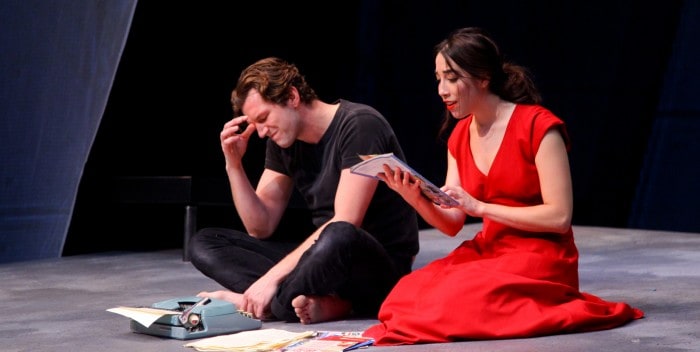Moira Buffini’s ultimate soap opera of contemporary family life
Blavatsky’s Tower is primarily a commentary on the dark side of family ties. Taking place in a penthouse at the top of a dreary tower, the play asks us to focus on the isolation of the Blavatsky family not only from society, but also from each other. Following some form of twisted logic, the patriarch Hector Blavatsky is the dictator of his family kingdom — he polices his children, through temper and emotional blackmail, to follow his every order and remain aloof from the outside world. Hector built this tower as a utopia for the family, but it turns them all into strange and seemingly soulless individuals, simply existing in a dystopic vacuum.
What makes Blavatsky’s Tower intriguing, however, is the way playwright Moira Buffini weaves complexity into this eerie world. The characters are not unapproachable and distant, or as emotionally bankrupt as they appear. In fact, each of the characters is struggling to break free of something, which makes them relatable to the audience. The family dynamic is also an exaggeration based in reality, and parallels the contemporary nuclear family. We are invited to voyeuristically observe this dark soap opera, which can, at several moments, become uncomfortably reminiscent of real life.
Hector and his children have no outward complaints about their lives, yet when an outsider, the Doctor, enters the household, their latent desires begin to unravel. The women come to terms with their oppression, and how they dedicate their time in the service of ungrateful and entitled men. Audrey and Ingrid Blavatsky are both responsible for fulfilling the role of their deceased mother, and must simultaneously be the breadwinner and caretakers of the house. The Blavatsky son, Roland, begins to see how his father’s will has crushed his spirit of all its creative impulses. Roland loves to sing and play his instrument yet can never explore his talent outside the four walls of the apartment, and away from the harsh criticism of his family. He struggles with incestuous desires, and has a confused idea of manhood, having never been required to prove himself against another man until the Doctor arrives.
The Doctor represents the voice of contemporary ‘civilized’ society, and immediately passes judgment on the Blavatsky family. However, as he discovers, there are many layers to this strange family and they are not just an insane bunch. They are just as human as he, and represent a heightened degradation of the modern family. Blavatsky’s Tower, therefore, shows us, underneath all the eccentricities, an ordinary family that is just trying to get by. It highlights the individual sacrifices we make to sustain relationships, and how the need for love and togetherness can be as gratifying as it is destructive.
Presenter: U of A Studio Theatre
Event Title: Moira Buffini Festival
Featuring: Blavatsky’s Tower by Moira Buffini.
Until December 6 at 7:30 p.m.
Matinee Thursday, December 4 at 12:30 p.m.
Venue: Timms Centre for the Arts, University of Alberta
Single show tickets: $11 student, $22 adult, $20 senior available online now at TIX on the Square and at the Timms Centre box office one hour before each performance.
Directed by Sandra Nicholls. Set and lighting design by Robyn Ayles. Costume design by David Lovett. Sound Design and composition by Rhys Martin.
For full cast, creative team and production team see show page: http://uofa.ualberta.ca/events/blavatskys-tower .

